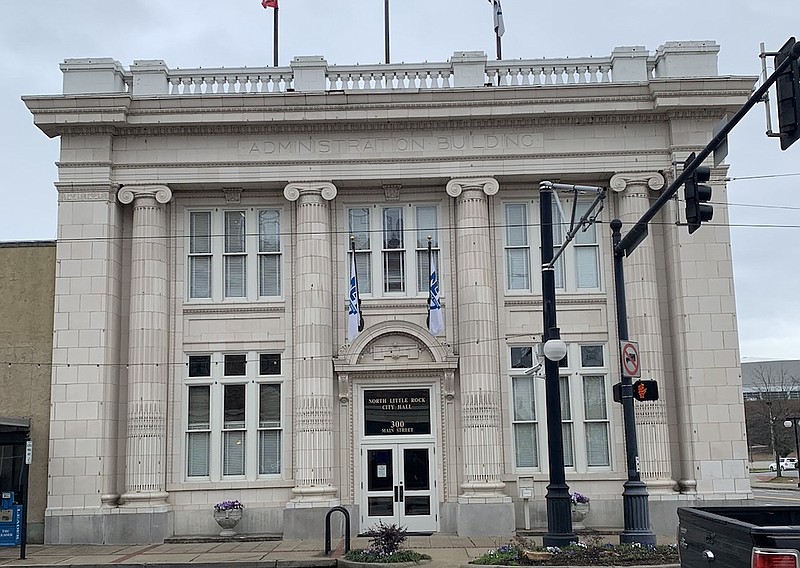For the first time in nearly a decade, North Little Rock's east side will have a health clinic.
On Monday, officials from the city of North Little Rock and Baptist Health gathered for a ceremonial groundbreaking for the planned North Little Rock Medical Plaza, which will be built near the corner of U.S. 70 and U.S. 165.
City officials announced that the project, funded in part by federal pandemic stimulus, was a triumph ending a nine-year wait for a health clinic on North Little Rock's poorer east side.
"This is going to help reach people where they are," said Deborah Rhodes, president of the North Little Rock National Association for the Advancement of Colored People. "The impact that it has had is going to be life-changing."
The new $5 million medical plaza will feature "state-of-the-art" equipment and will provide some emergency care and trauma services to patients. The health clinic will be finished in 14 months, according to a news release from Baptist Health.
For many east-side residents, the shorter distance to the new medical plaza could make a difference because Baptist Health Medical Center is on the north side of Interstate 40 and the Union Pacific railroad tracts, which make it nearly impossible for someone to walk there from the south.
Rock Region Metro has a bus stop near Baptist Health Medical Center, but it is an estimated 45-minute to one-hour journey from the Rose City Community Center, compared with just a nine-minute ride, according to Google Maps.
"Disparities in health care outcomes are well recognized, and where people live can make a difference in expected life span by many years," said Dr. Stan Kellar, chief medical officer of Baptist Health Medical Center North Little Rock in a statement. "Difficulties in accessing care contributes to the disparity. Improving the health of residents in Rose City is our goal and expectation."
Bringing a health clinic to Rose City was a campaign promise from Mayor Terry Hartwick, who grew up in Rose City. He said he remembers when the neighborhood was a middle-class community where doctors made house calls and where he was treated at a local clinic for a head injury.
Access to care can be a factor in public health as people are less likely to seek preemptive care, or a primary care doctor the farther they live from a health clinic, according to the federal Office of Disease Prevention and Health Promotion.
"It saves lives, it saves time and time is life-saving," Hartwick said.
"The aldermen were very, very focused -- along with me -- to bring something there," Hartwick said. "So maybe it was just a combined effort with council people, me, the money available and then the partnership we established with Baptist [Health] was very, very important."
The health clinic is financed in large part by the $16.8 million in federal pandemic stimulus the city received. The funds were used to purchase the property that will be the site of the new health care plaza. The city also financed construction with funds from recent sales of city-owned land.
For many in Rose City, Dixie and other east-side communities, the old Baptist Health Clinic on East Broadway Street was their main source of medical care, but the clinic closed after a fire in 2013.
Since then, lack of access to medical care became just another issue east side residents had to deal with along with a scarcity of grocery stores, public transit and jobs.
Earnest Franklin, president of the neighborhood association in Dixie, said residents in his mostly Black community have been ignored for years. Franklin welcomed the news of the health clinic to Rose City but lamented that Dixie has seen cuts in bus services and continued flooding from poor drainage on East Broadway Street.
"I don't think -- I know -- that the Black community has been ignored," Franklin said.
Rhodes said it's hard to ignore the largely white and middle-income neighborhoods in North Little Rock that have access to health care, grocery stores, jobs and transportation, and the poorer Black areas on the east side.
"I would like to say that race does not have a factor, but being realistic, even though it's 2022, it does matter in a lot of instances," Rhodes said.
